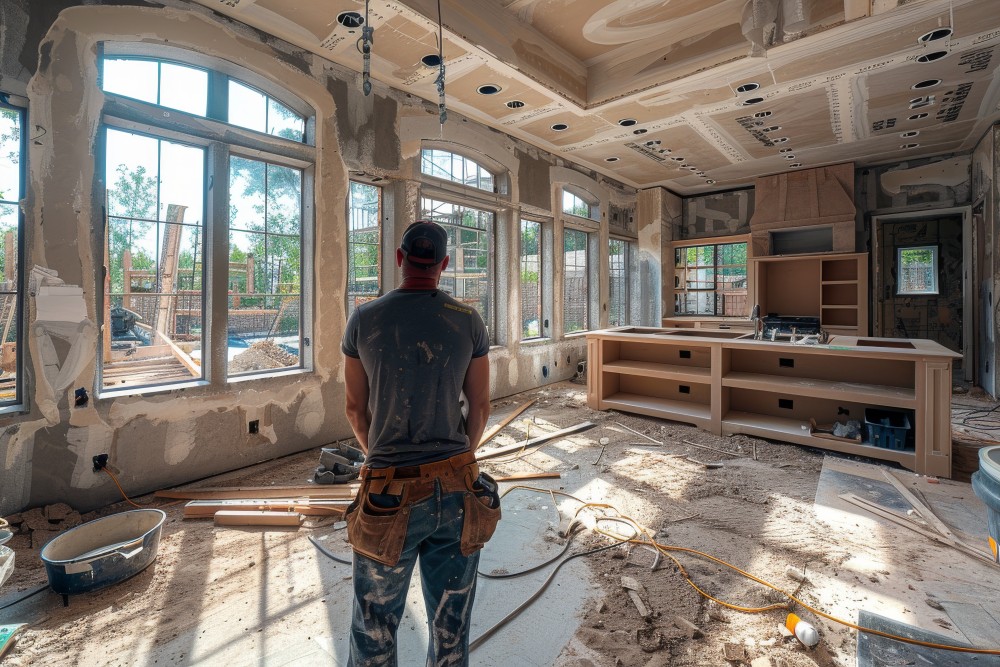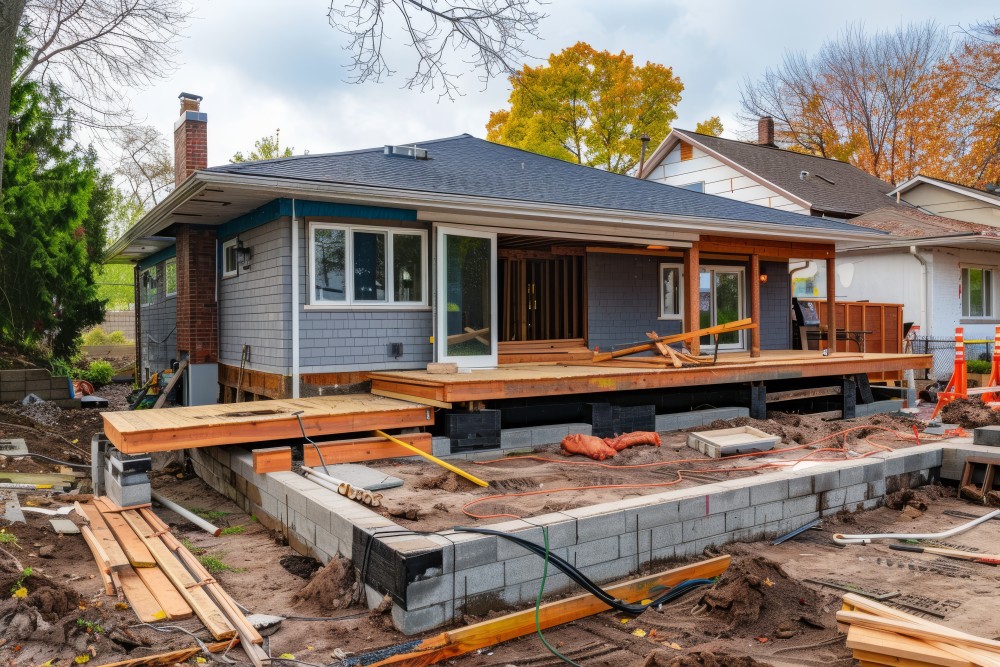Why Are Permits Necessary?
1. Ensuring Safety
- Code Compliance: Building codes are established to ensure that renovations meet minimum safety standards. These codes address structural integrity, electrical systems, plumbing, and fire safety. Permits ensure that your project complies with these standards, protecting the occupants and the property.
- Professional Oversight: Obtaining a permit often involves inspections by local building authorities. These inspections provide an additional layer of oversight, ensuring that the work is completed safely and correctly.
2. Legal Protection
- Avoiding Penalties: Undertaking a renovation without the required permits can result in fines, legal actions, and orders to halt work. In some cases, you may be required to undo completed work and redo it to meet code requirements, adding significant costs.
- Smooth Transactions: When selling your home, unpermitted work can become a significant obstacle. Potential buyers may be wary of purchasing a home with unpermitted renovations, and it could complicate the sale process.
3. Insurance Coverage
- Valid Claims: Insurance companies may deny claims for damages resulting from unpermitted work. Ensuring that your renovation is properly permitted protects your investment and ensures that you remain covered in case of an accident or disaster.
Join HICP Homeowner’s Alliance
Connect with experts, get special discounts and enjoy member benefits
Common Projects Requiring Permits
- Structural Changes: Adding or removing walls, expanding the footprint of the house, or altering the roofline.
- Electrical Work: Installing new wiring, upgrading electrical panels, or adding new circuits.
- Plumbing Work: Installing or relocating plumbing fixtures, adding new pipes, or connecting to municipal services.
- HVAC Installations: Installing or modifying heating, ventilation, and air conditioning systems.
- Roofing: Major roof repairs or complete replacements.
- Windows and Doors: Installing new windows or doors, especially if it involves altering the structure.
How to Obtain Permits
1. Research Local Requirements
- Contact Local Authorities: Start by contacting your local building department or visiting their website to understand the specific requirements for your area. Each municipality has its own set of regulations and processes.
- Determine Permit Types: Identify the types of permits you need for your project. Some projects may require multiple permits (e.g., building, electrical, and plumbing).
2. Prepare Necessary Documentation
- Detailed Plans: Submit detailed plans of your renovation project. These plans should include drawings, specifications, and any other relevant documentation that outlines the scope of the work.
- Application Forms: Fill out the required permit application forms provided by your local building department.
3. Submit Your Application
- Fee Payment: Pay the applicable permit fees. The cost varies depending on the scope and complexity of the project.
- Application Review: The building department will review your application and plans. This review ensures that the proposed work complies with local building codes and regulations.
4. Schedule Inspections
- Progress Inspections: Depending on the complexity of your project, you may need to schedule multiple inspections at various stages of the renovation. Common inspection points include foundation work, framing, electrical, plumbing, and final inspection.
- Final Approval: Once all inspections are completed and your project complies with all requirements, the building department will issue a final approval or certificate of occupancy.
Consequences of Skipping Permits
1. Legal and Financial Repercussions
- Fines and Penalties: Performing unpermitted work can result in significant fines and penalties. Municipalities take building code violations seriously to ensure public safety.
- Increased Costs: If unpermitted work is discovered, you may be required to halt your project, undo completed work, and redo it according to code. This can substantially increase your renovation costs.
2. Impact on Property Value
- Marketability: Unpermitted work can decrease the marketability of your home. Potential buyers may be hesitant to purchase a property with undocumented renovations, fearing hidden issues or future liabilities.
- Appraisal Issues: Unpermitted work may not be included in the official appraisal of your home, potentially lowering its assessed value.
3. Insurance Complications
- Denied Claims: Insurance companies may refuse to cover damages related to unpermitted work. This leaves you financially responsible for any repairs or replacements needed due to accidents or disasters.
Obtaining the necessary permits for your home renovation project is not just a bureaucratic hurdle; it’s a crucial step in ensuring the safety, legality, and success of your renovation. By complying with local building codes and regulations, you protect your investment, avoid legal complications, and ensure that your home remains a safe and valuable asset. Always do your due diligence, work with licensed professionals, and follow the proper permitting process for a smooth and successful renovation experience.



















